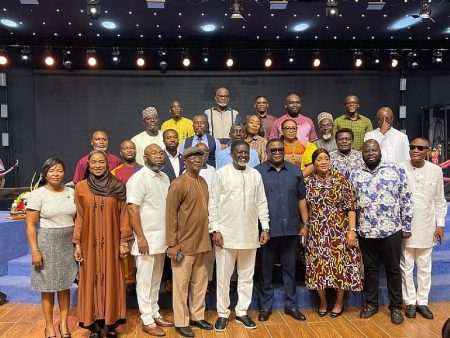Paragraph 1: Enforcing Order and Cleanliness on Lagos Roads: A Focus on Ojo-Alaba Corridor
Lagos, a bustling metropolis with a dynamic and ever-growing population, faces persistent challenges in maintaining order and cleanliness on its roads and public spaces. The recent arrest and remand of 34 individuals for illegal occupation of medians along the Ojo-Alaba Road corridor exemplifies the ongoing efforts to address these issues. The Ojo-Alaba Road, a vital artery in the city’s transportation network, has been plagued by various forms of encroachment, including trading, residing, and even open defecation on road medians and setbacks. These activities not only create an unsightly environment but also pose significant risks to public health and safety. This action signals a renewed commitment by the Lagos State government, through its various agencies, to enforce regulations and restore order to public spaces.
Paragraph 2: The Role of LAWMA and Inter-Agency Collaboration
The Lagos Waste Management Authority (LAWMA), the agency responsible for waste management and environmental sanitation in the state, spearheaded the operation that led to the arrests. LAWMA’s Managing Director and Chief Executive Officer, Ibrahim Odumboni, confirmed the arrests and emphasized the importance of maintaining a clean and orderly environment. In this particular operation, LAWMA collaborated with the Lagos Environmental Sanitation Corps (LAGESC), also known as KAI, which is the enforcement arm responsible for monitoring and ensuring compliance with environmental sanitation laws. This inter-agency collaboration highlights the integrated approach adopted by the Lagos State government in tackling environmental challenges. Furthermore, the involvement of the OP MESA team from the NNS Beecroft naval base at Apapa demonstrates the commitment to leveraging resources and expertise from various stakeholders to achieve the desired outcomes.
Paragraph 3: Offenses and Legal Proceedings: A Detailed Account
The 34 individuals apprehended during the operation comprised 32 males and two females. The offenses they were charged with included residing on road medians, trading on these spaces, and defacing public infrastructure. These activities constitute violations of existing environmental laws and regulations designed to protect public spaces and maintain a healthy environment. Following their arrest, the suspects were arraigned before the Magistrate’s Court sitting at Bolade, Oshodi. The court subsequently ordered their remand in custodial detention until July 22, 2025. This decisive action sends a strong message that such violations will not be tolerated and that offenders will face the consequences of their actions.
Paragraph 4: The Significance of the Remand Order: Deterrence and Enforcement
The Magistrate’s decision to remand the suspects in custody until 2025 underscores the seriousness of the offenses and the determination of the judicial system to uphold the law. The length of the remand period is likely intended to serve as a deterrent, discouraging others from engaging in similar illegal activities. The arrests and subsequent remand also demonstrate the effectiveness of the collaborative efforts between LAWMA, LAGESC, and other security agencies. This coordinated approach sends a clear signal that the authorities are committed to enforcing environmental regulations and maintaining order on Lagos roads and public spaces. The visibility of these enforcement actions is crucial in creating a culture of compliance and promoting responsible behavior among citizens.
Paragraph 5: Broader Implications for Urban Management in Lagos
The Ojo-Alaba Road enforcement operation reflects the broader challenges faced by rapidly growing urban centers like Lagos in managing public spaces and ensuring compliance with regulations. As the city’s population continues to increase, there is mounting pressure on public infrastructure and resources. The encroachment on road medians and other public spaces highlights the need for effective urban planning, adequate provision of housing and commercial spaces, and robust enforcement mechanisms. The success of these efforts will depend on the continued collaboration between government agencies, the judiciary, and the public in promoting a culture of responsible citizenship and adherence to the rule of law.
Paragraph 6: Looking Ahead: Sustainable Solutions and Public Awareness
While enforcement actions are necessary to address immediate violations, long-term solutions require a multi-faceted approach. This includes public awareness campaigns to educate citizens about the importance of maintaining a clean and orderly environment, as well as the provision of alternative spaces for trading and other legitimate activities. Furthermore, tackling the root causes of such encroachments, such as poverty and lack of access to affordable housing and business premises, is crucial. Sustainable solutions will require a collaborative effort from government agencies, civil society organizations, and the private sector to create a more livable and sustainable urban environment for all residents of Lagos.














